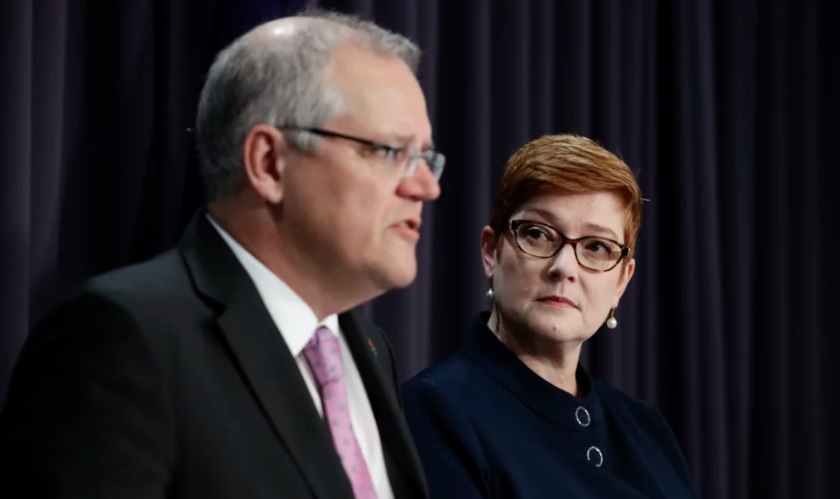The sense of urgency was evident by the way it packed the number of countries it had on its call sheet into a matter of hours to inform them it would soon announce it was considering recognising Jerusalem as Israel’s capital and withdrawing its support for the Iran nuclear deal.
Israel’s ambassador Mark Sofer confirmed on Tuesday that “the first official statement or knowledge that we had of it was last night”.
The Department of Foreign Affairs contacted Australia’s key intelligence-sharing partners, the US, Britain, Canada and New Zealand, as well as France and Germany as signatories to the Iran nuclear deal.
Foreign Minister Marise Payne called her Indonesian counterpart Retno Marsudi and Prime Minister Scott Morrison contacted – now rather infamously – President Joko Widodo via messaging app, a form of communication that Labor considered sufficiently perfunctory to attack the government about it in Parliament’s question time.
As the dust has settled on Mr Morrison’s shock announcement that he would consider following the path set by US President Donald Trump by moving Australia’s embassy to Jerusalem – a U-turn on decades of Australian foreign policy – and pulling support for the Iran deal, attention has turned to how this bombshell decision came about just days ahead of the Wentworth byelection, where it is expected to play well with the Sydney electorate’s considerable Jewish population.
Jewish groups say they have not dramatically stepped up their representations to Mr Morrison – their views on both these questions have been long-held, well-known and consistent.
Read the article by David Wroe the defence and national security correspondent for The Age and SMH in The Sydney Morning Herald.

